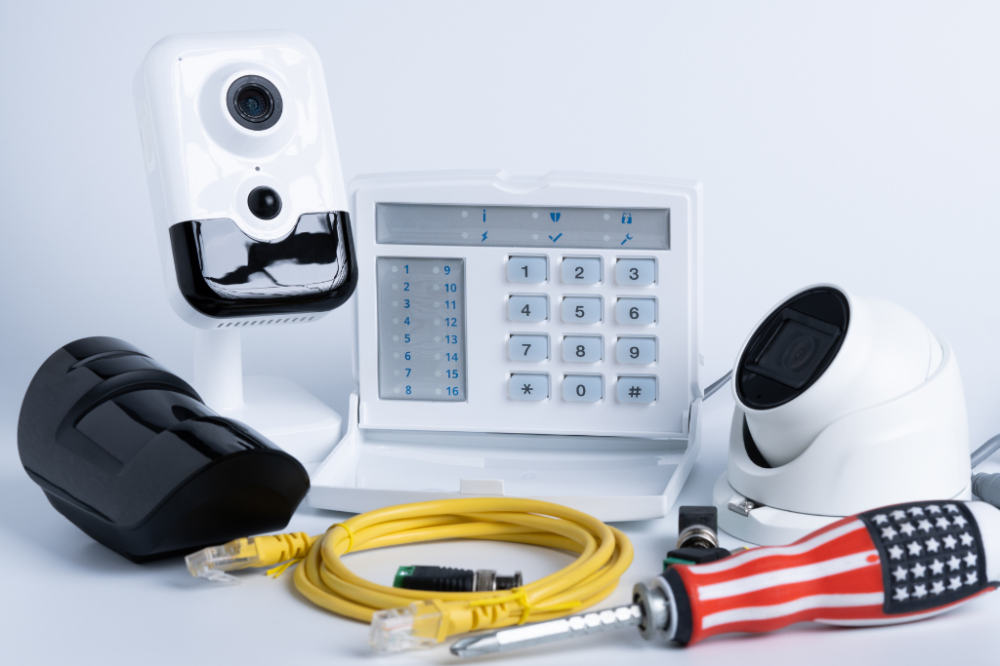Understanding Wireless vs. Wired Security Systems: Which is Right for You? |
|
Introduction Choosing between a wireless or wired security system is a significant decision that affects your home’s safety and your peace of mind. As technology has evolved, both wireless and wired systems have developed advantages tailored to various needs. While wired security systems have long been the go-to solution, wireless options are now more reliable, flexible, and popular. Understanding their differences is essential to help you select the system that best suits your home, lifestyle, and security needs. This guide explores the core distinctions, advantages, and potential downsides of wireless and wired security systems to empower you to make an informed decision. 1. What Are Wireless and Wired Security Systems? Wired Security Systems use cables to connect cameras, sensors, and other devices directly to a central control panel. These systems require wiring throughout the home, making them more challenging to install but reliable over time. Wireless Security Systems communicate through Wi-Fi, cellular, or radio signals, eliminating the need for physical wiring. This technology offers more flexibility but may depend on a stable network connection to function effectively. 2. Key Differences Between Wireless and Wired Security Systems A. Installation and Setup Wired Systems: Installing a wired security system requires a professional, as cables need to be hidden or routed through walls. This process may take longer and incur higher installation costs, but it ensures consistent connectivity. Wireless Systems: Wireless setups are typically user-friendly and often designed for DIY installation. They’re quick to install, making them ideal for renters or homeowners who prefer minimal setup. B. Reliability and Connectivity Wired Systems: With a direct connection, wired systems are highly reliable, minimizing the risk of interference or disconnection. Wireless Systems: Wireless systems rely on network signals, which can occasionally experience interference or slowdowns, potentially impacting performance. C. Mobility and Flexibility Wired Systems: These systems are best for long-term solutions, as moving the system would require reinstallation. Wireless Systems: Wireless systems can be easily relocated, making them perfect for renters or those who might move frequently. D. Power Source and Backup Options Wired Systems: Wired security setups are powered through electrical connections, which are dependable unless there is a power outage. However, many come with battery backup options. Wireless Systems: Wireless systems are typically battery-powered, allowing them to continue functioning during power outages if properly maintained. E. Security Vulnerability Wired Systems: Wired systems are generally less vulnerable to hacking, as they aren’t connected to a network and don’t rely on wireless communication. Wireless Systems: Wireless systems offer convenience but may be susceptible to cyber threats. Strong network security and encryption are necessary for optimal protection. 3. Advantages of Wired Security Systems High Reliability: Wired systems rarely face connectivity issues, making them ideal for consistent surveillance. Enhanced Security: These systems are hard to hack, providing peace of mind for those worried about digital threats. Quality of Video and Audio: Wired connections support high-resolution footage without network lag. 4. Advantages of Wireless Security Systems Easy Installation: With no wires required, these systems are typically quicker to set up. Remote Access and Smart Integration: Many wireless systems integrate with mobile apps, allowing for easy monitoring from anywhere. Flexibility and Portability: Wireless systems can be relocated or modified easily, making them a convenient choice. 5. Disadvantages of Each System Wired Security Systems: Installation can be time-consuming and costly. Additionally, system mobility is limited. Wireless Security Systems: These systems can be prone to interference and network vulnerabilities, and some require regular battery maintenance. Conclusion Both wireless and wired security systems offer unique advantages that cater to different security needs. Whether you're exploring Home security installation near me or deciding between options, it’s important to consider what works best for your home. If long-term reliability and security are top priorities, a wired system may be the ideal choice. However, if you value flexibility, easy installation, and smart integration with other devices, a wireless system could be the better fit. Assessing your specific needs and budget will help you choose the system that best aligns with your lifestyle and safety requirements. |
 |
